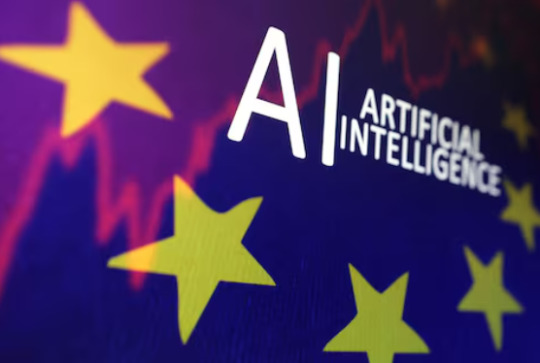#JevonsParadox
Explore tagged Tumblr posts
Quote
Since Jevons’ original observation about coal-fired steam engines is a bit hard to relate to, my favourite modernized example for people who aren’t software nerds is display technology. Old CRT screens were horribly inefficient - they were large, clunky and absolutely guzzled power. Modern LCDs and OLEDs are slim, flat and use much less power, so that seems great … except we’re now using powered screens in a lot of contexts that would be unthinkable in the CRT era. If I visit the local fast food joint, there’s a row of large LCD monitors, most of which simply display static price lists and pictures of food. 20 years ago, those would have been paper posters or cardboard signage. The large ads in the urban scenery now are huge RGB LED displays (with whirring cooling fans); just 5 years ago they were large posters behind plexiglass. Bus stops have very large LCDs that display a route map and timetable which only changes twice a year - just two years ago, they were paper. Our displays are much more power-efficient than they’ve ever been, but at the same time we’re using much more power on displays than ever.
datarama
2 notes
·
View notes
Text
Europe's AI Innovators Pin Hopes on 'Jevons Paradox' After DeepSeek Setback
After the sudden and sharp downturn of DeepSeek, one of Europe’s most anticipated artificial intelligence (AI) startups, many AI advocates in the region are turning to the economic theory of Jevons Paradox as a beacon of hope. The paradox, which suggests that as technology improves efficiency, the demand for that technology may actually increase, has become a key focus for European AI innovators who are navigating a rapidly shifting market.

DeepSeek's Struggles: A Wake-Up Call
DeepSeek, once considered a promising player in Europe’s AI landscape, recently faced a major setback, with its stock plummeting and its future uncertain. The company, which had been at the forefront of developing advanced AI models and tools, struggled to meet its ambitious goals amidst mounting competition and market fluctuations.
While the AI sector in Europe remains poised for growth, DeepSeek’s difficulties have caused some to question the pace of development and its long-term sustainability. However, despite the setback, many AI leaders in Europe believe that AI still has a bright future in the region, bolstered by the principles of Jevons Paradox.
Understanding Jevons Paradox in the AI Context
At its core, Jevons Paradox argues that as technological advancements make processes more efficient, they often lead to increased demand rather than a reduction in consumption. In the context of AI, this could mean that as AI technologies become more effective and accessible, businesses and industries may adopt AI-driven solutions on a much larger scale, leading to increased usage and demand across various sectors.
European AI experts are now looking at Jevons Paradox as a potential framework to guide future investments and developments in the field. They believe that AI’s increasing capabilities—from automating routine tasks to optimizing complex systems—will ultimately drive greater adoption, creating new opportunities even as initial challenges persist.
AI's Role in Industry Transformation
As industries continue to seek ways to optimize their operations, the demand for AI technologies will only grow. From healthcare and finance to manufacturing and transportation, the applications of AI are vast and varied. In fact, many AI advocates argue that the disruption caused by companies like DeepSeek is part of a natural cycle in technological evolution. While some players may falter, the underlying demand for AI-driven transformation remains strong.
Europe, despite facing stiff competition from other global AI powerhouses, is well-positioned to take advantage of the shift towards smarter automation and data-driven decision-making. The region’s focus on ethical AI development and the push for sustainability in technological advancements could offer a unique edge in capturing a larger share of the global AI market.
Why Europe is Optimistic About AI's Future
While the market remains volatile, there is optimism surrounding Europe’s AI sector, thanks in part to the concept of Jevons Paradox. As AI solutions evolve and become more efficient, European innovators are confident that industries will increase their reliance on AI systems, driving demand for new, cutting-edge technologies. This increasing adoption could help stabilize the market, even in the face of setbacks from companies like DeepSeek.
Moreover, Europe’s focus on regulation and ethical AI offers a competitive advantage. While other regions may be focusing solely on technological speed and power, Europe is taking a more measured approach to AI development, ensuring that its solutions are both innovative and aligned with social values.
Looking Ahead: AI and the Future of Innovation
Despite DeepSeek's challenges, Europe's AI vision remains strong. Innovators and researchers across the continent are pushing forward with new breakthroughs, backed by substantial investments from both the public and private sectors. The Jevons Paradox offers a renewed perspective: instead of fearing the volatility and hurdles, Europe's AI leaders are embracing the belief that efficiency improvements in AI will spark new growth opportunities, driving further technological progress and economic expansion.
Europe’s AI future may involve overcoming significant obstacles, but with the principle of Jevons Paradox in mind, the ultimate outcome could be a thriving and dynamic market where demand for AI grows exponentially.
3 notes
·
View notes
Photo

The usual.
#honoluluclub#hpu#gibill#industrialecology#jevonsparadox#energyefficiency#sustainability#finals#exams#hawaiipacificuniversity#mba
0 notes
Video
#hardware is hype for me... #leds #jevonsparadox #arduino #opensource #adafruit #diy
0 notes